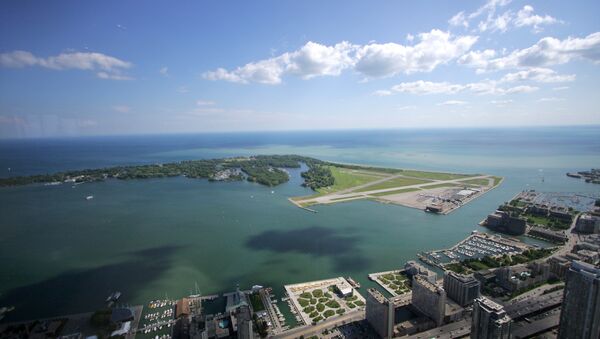13-year-old Autumn Peltier, who gained international recognition for promoting clean water for indigenous communities in Canada, will address world leaders at the United Nations (UN) in March.
She will speak at the UN General Assembly in New York for the declaration of the International Decade for Action on Water for Sustainable Development.
During the Assembly of First Nations' annual winter meeting in 2016, Peltier met face-to-face with Canadian Prime Justin Trudeau and said that she is "very unhappy with the choices" the national leader made.
Autumn Peltier headed to United Nations General Assembly in Marchhttps://t.co/042R8UL5P6#INDIGENOUS #TAIRP pic.twitter.com/j6XUCYfHNK
— Indigenous (@AmericanIndian8) 19 декабря 2017 г.
In Canada, where American Indian tribes are referred to as 'First Nations', Autumn lives on Wikwemikong First Nation tribal land in the remote wilderness of Northern Ontario. Once praised for its environmental track record, Ottawa is now routinely condemned as a top polluter for its use of fracking to produce oil for export.
It was an apparent reference to Trudeau's support of a spate of pipeline projects, which were harshly criticized by indigenous environmental activists.
@Gchi Dewin Annual Story Tellers Festival Parrysound, ON 2017. AutumnPeltier Waterwarrior1 Wateradvocate with Her grandmother Josephine Mandamin, working alongside eachother:) pic.twitter.com/hsVJUftoLB
— Stephanie Peltier (@StephaniePelti3) 9 декабря 2017 г.
Peltier started to advocate for water protection when she was eight and has been in attendance at an array of major international gatherings since then.
Last year, she attended the Children's Climate Conference in Sweden, and in 2016, she was the only Canadian to be nominated for the International Children's Peace Prize – an award that she failed to win.
READ MORE: Russian Scientists Create Tool to Spot Tiniest Concentration of Toxins in Water
She told the BBC that she had no regrets about it because "this award isn't going to stop you from doing the work you're doing" and that she will keep "doing my work until the water's clean."
"Water is one of the most sacred elements in our culture because we use this water in ceremony. We need water to survive and live and that's literally the only reason we're here today is water," she underscored.


